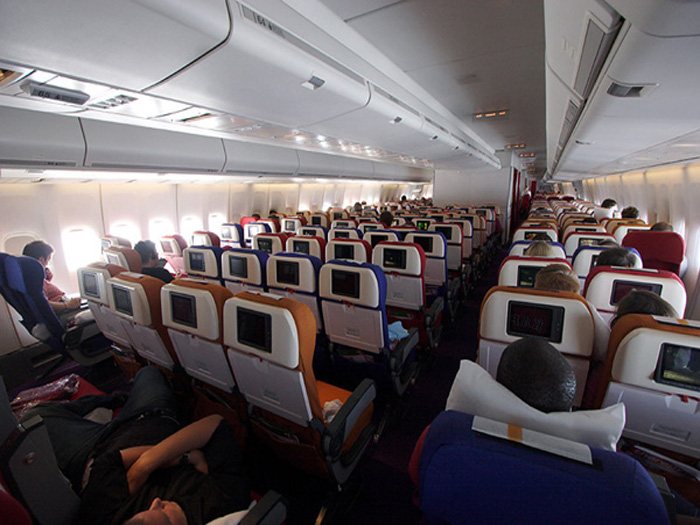Safety phones create airline security threat
Japanese kids' phones provoking fear at 30,000 feet

The tense security climate that airlines worldwide currently operate in is now bringing an unexpected technical challenge for both passengers and staff, as Japanese carriers have been finding out recently.
At the root of the problem is a new breed of mobile phones that can't easily be switched off which are designed specifically for children. Airlines, which all have a long-standing safety policy of banning active phones from their cabins, have increasingly been finding that kids' phones have a tendency to spring back to life in mid-flight .
Phone home
The reanimation feature of many handsets, such as those sold by market leader NTT DoCoMo , is intended to protect children in an increasingly crime-aware Japan. Such phones regularly 'check in' automatically using GPS or location-based email to inform parents of the their children's whereabouts.
To keep the safety net in place manufacturers have made it impossible for kids - or anyone else - to switch the phones off without inputting a passcode. Moreover, the phones also have batteries that can't be removed without a special key.
As a result, Japanese airlines now display prominent warnings and advice on how to make sure such safety phones really are off. In the case of passengers who can't remember their passcodes, companies like ANA and JAL have also armed their staff with the tools for cracking the phones open and ripping out their batteries. Perhaps such a hard-line approach will jog a few memories next time round.
Get daily insight, inspiration and deals in your inbox
Sign up for breaking news, reviews, opinion, top tech deals, and more.
J Mark Lytle was an International Editor for TechRadar, based out of Tokyo, who now works as a Script Editor, Consultant at NHK, the Japan Broadcasting Corporation. Writer, multi-platform journalist, all-round editorial and PR consultant with many years' experience as a professional writer, their bylines include CNN, Snap Media and IDG.